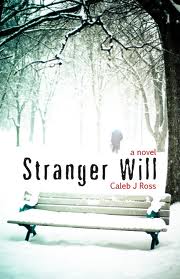I’ve been reading a lot of short story collections this year, and they always take me so much longer to get through than novels. Which I’m certain mirrors their authors’ own experiences creating them. It can be exhausting reading more than one story per sitting, even if it’s just ten pages.
Creative writing instructors often use the iceberg metaphor. Because ice is slightly less dense than water, only 10% of it is visible above the surface. Same thing with characters and their backstories and the universes they inhabit. The portion shown to the reader is merely the tip of said iceberg, but what’s hidden from view is what built up these worlds and enabled this particular story. Musicians make similar claims about subsonic vibrations or overtones that are necessary to support those notes we do hear.
It’s no surprise that when sci-fi crosses over into the mainstream, it tends to be that which isn’t bogged down with proving the feasibility of its technology. Sure, that’s part of the 90% that makes the world run, but what we care about are the characters and our ability to relate to their humanity. Battlestar Galactica, Children of Men, and Gattaca are all great examples of this approach. Viewers assume these fictional societies are functional, so let’s just get on with whatever drama makes this particular event unique in their lives, and leave those schematics and history books underwater.
Anyway, back to shorts. There’s a place for all kinds, but my favorites tend to be those that feel like a biopsy of something larger, that this view through the window could easily be expanded into a novel or even series. It’s not that they literally compact so much detail into such a small space, but that it’s implied — they give us just enough periphery so that if we turn our heads a little, we can’t see the stagehands in the wings or the seams in the set dressing. They did their homework that allows the reader to be immersed in the universe of that story, to hopefully invent some of it for themselves.
Picasso famously once doodled on a napkin for someone, who then balked at his asking price, saying (paraphrased), “But it only took you a minute!” To which he said, “No, madam, it took my whole life.” And that’s how I feel about short stories, as far as what’s on display versus the effort behind their creation. When you read a collection of these stories, you’re taking that entire journey, following a character’s arc to its conclusion, perhaps 20 or 30 times in the same space one novel would occupy. You’re meeting all new people with varying names and motives, in landscapes familiar, foreign, and alien, and in voices close, distant, or unreliable. The happenings may be on a smaller scale, on a smaller stage, but not necessarily with any less consequence. All of those elements had to be considered and conceived by the author, and processed by the reader. And so it’s one story per sitting for me.











